This article was medically reviewed by Ankush Bansal, MD. Dr. Bansal is a board certified Internal Medicine Physician in Florida. He received his medical degree from Creighton University School of Medicine and completed his residency in internal medicine at Christiana Care Health Services in 2007. He is licensed in 19 states and is a fellow of the American College of Physicians and senior fellow of the Society of Hospital Medicine.
There are 23 references cited in this article, which can be found at the bottom of the page.
wikiHow marks an article as reader-approved once it receives enough positive feedback. In this case, 96% of readers who voted found the article helpful, earning it our reader-approved status.
This article has been viewed 111,021 times.
Studies show that supporting your kidney’s function is important to your well-being whether you are otherwise healthy or at-risk for kidney disease.[1] Your kidneys remove waste products and drugs from the body, balance your body’s fluids, release hormones to regulate blood pressure, promote development of strong and healthy bones, and control the production of red blood cells. Research suggests that by managing lifestyle factors and getting medical treatment, you can support kidney function and promote your overall health.[2]
Steps
Managing Your Lifestyle
-
1Hydrate wisely. Because the kidneys help flush out waste products and drugs, some people might think that over hydrating can benefit their kidney function. But there are no studies that support this and instead recommend drinking four to six glasses a day. This amount should be sufficient to support your kidneys’ function.[3]
- Stick to water, which is the best option to keep you hydrated without added sugar, caffeine, or other substances to your diet.
- Drink more if you are active, especially in the summer. Add 8 ounces of water for every hour you’re active.[4]
-
2Maintain a healthy diet. The kidneys can generally tolerate a lot of different foods, but most kidney problems are related to other medical conditions like diabetes or high blood pressure that can be controlled by food.[5] Eating a healthy and nutrient rich diet can help support your kidney functions and may also have the benefit of managing other conditions.
- Choose a balance of healthy foods such as fruits, vegetables, whole grains, dairy products, lean meats, and beans.[6]
- Avoid too much sodium. Don’t add salt when cooking or buy high-sodium processed foods.[7] Eliminate fast food and limit salty snacks except for very rare occasions.
- Select foods with lower levels of potassium such as apples, carrots, cabbage, green beans, grapes, and blueberries. Limit or avoid high potassium foods like bananas, oranges, potatoes, spinach and tomatoes.
- Limit protein sources. Choose lean meats such as chicken or fish and trim off any fat you see. Bake, grill, or broil your meats instead of frying them.[8] You can also get protein from sources like vegetables, fruits, whole-grain breads, and non-sugary cereals.
Advertisement -
3
-
4Exercise regularly. Getting exercise can promote your overall health, but can also help counteract the dangers of kidney disease.[13] Getting some moderate activity most days of the week can support your kidney function and ward off weight that may cause kidney problems or other health concerns.[14]
- Speak to your doctor before starting any exercise regimen.
- Aim to get at least 30 minutes of moderate exercise five days a week. You can do a variety of activities such as walking, running, jogging, swimming, biking, or even dancing.[15]
- Regular exercise and a healthy diet can help you maintain a healthy weight, which lowers your risk for kidney disease.[16]
Managing Your Kidney Functions Medically
-
1Follow instructions on over-the-counter pain medication. If you are suffering from pain from your kidneys or any other area and want to use over-the-counter pain relievers, make sure to follow the packaging instructions. Taking too much pain medication can cause kidney disease or make existing kidney problems worse.[17]
- Consider avoiding NSAID pain relievers if you already suffer from kidney problems. These include ibuprofen and naproxen sodium.[18]
- Ask your doctor if these medications are safe for you to take.
-
2Control underlying conditions. Certain conditions, including high blood pressure and diabetes, can cause or increase your risk for kidney disease. By managing any underlying causes, you may be able to support your kidney function.[19]
- Monitor your blood pressure regularly at home or a doctor’s office. You target blood pressure should be less than 130/80 mm Hg.[20]
- Check and control your blood sugar if you have diabetes.[21]
- Watch your cholesterol levels to make sure they’re within a healthy range.[22] Your doctor can order blood tests to check your levels.[23]
- Remember to take any medication for underlying conditions your doctor prescribes.[24]
-
3See your doctor. If managing lifestyle and underlying conditions doesn’t improve how you feel, if you’re feeling worse, or if you suspect that you may have kidney disease, schedule an appointment with your doctor. She can run tests and come up with a treatment plan specifically for you.[25]
-
4Discuss treatment options with your doctor. Once your doctor has diagnosed what is causing problems with your kidneys, discuss your treatment options with him. Depending on the severity of your case or underlying causes, he may suggest continuing to support your kidney function with lifestyle, taking medication, or even undergoing dialysis.[29]
-
5Treat complications with medication. Certain medications may help treat complications that arise from kidney disease. Take these to see if they help support your kidney function. Your doctor may prescribe medications that:
- Lower high blood pressure, such as an ACE inhibitor.
- Decrease water retention and swelling
- Lower cholesterol, such as statins
- Treat anemia, such as the supplement erythropoietin
- Protect bones, such as calcium and Vitamin D supplements.[30]
- Your doctor may also suggest a lower protein diet to reduce waste products in your blood.[31]
-
6Consider end-stage treatments. You may get to a point where your kidneys can’t keep up with ridding your body of waste and fluid. If this is the case, you may have end-stage kidney disease, which will more extensive care.[32] Speak to your doctor about what you need to avoid complete kidney failure. She may suggest:
Warnings
- Diabetes is a major risk factor for kidney disease. Consistently high blood sugar damages the kidneys over time. If you suffer from diabetes, ask your doctor about diet and treatment to prevent kidney disease.[35]⧼thumbs_response⧽
References
- ↑ https://www.kidney.org/kidneydisease/howkidneyswrk
- ↑ https://www.kidney.org/atoz/content/sixstepshealthprimer
- ↑ http://health.clevelandclinic.org/2015/04/7-secrets-to-keeping-your-kidneys-healthy/
- ↑ http://orthoinfo.aaos.org/topic.cfm?topic=a00531
- ↑ http://health.clevelandclinic.org/2015/04/7-secrets-to-keeping-your-kidneys-healthy/
- ↑ http://www.kidneyfund.org/prevention/live-healthy/
- ↑ http://www.kidneyfund.org/prevention/live-healthy/
- ↑ http://www.kidneyfund.org/prevention/live-healthy/
- ↑ https://www.kidney.org/news/kidneyCare/winter10/AlcoholAffects
- ↑ http://www.kidneyfund.org/prevention/live-healthy/
- ↑ http://www.kidneyfund.org/prevention/live-healthy/
- ↑ http://www.kidneyfund.org/prevention/live-healthy/
- ↑ http://www.kidneyfund.org/prevention/live-healthy/
- ↑ http://www.kidneyfund.org/prevention/live-healthy/
- ↑ http://www.kidneyfund.org/prevention/live-healthy/
- ↑ http://www.kidneyfund.org/prevention/live-healthy/
- ↑ https://www.kidney.org/atoz/content/painmeds_analgesics
- ↑ https://www.kidney.org/atoz/content/sixstepshealthprimer
- ↑ https://www.mayoclinic.org/diseases-conditions/chronic-kidney-disease/symptoms-causes/syc-20354521
- ↑ https://www.niddk.nih.gov/health-information/kidney-disease/high-blood-pressure
- ↑ https://www.kidney.org/atoz/content/diabetes
- ↑ https://www.kidney.org/atoz/content/cholesterol
- ↑ http://www.heart.org/HEARTORG/Conditions/Cholesterol/AboutCholesterol/What-Your-Cholesterol-Levels-Mean_UCM_305562_Article.jsp#.Vp7SW-mRjdk
- ↑ http://www.heart.org/HEARTORG/Conditions/Cholesterol/AboutCholesterol/What-Your-Cholesterol-Levels-Mean_UCM_305562_Article.jsp#.Vp7SW-mRjdk
- ↑ https://www.kidney.org/atoz/content/kidneytests
- ↑ http://www.mayoclinic.org/diseases-conditions/kidney-disease/basics/preparing-for-your-appointment/con-20026778
- ↑ http://www.mayoclinic.org/diseases-conditions/kidney-disease/basics/preparing-for-your-appointment/con-20026778
- ↑ http://www.mayoclinic.org/diseases-conditions/kidney-disease/basics/preparing-for-your-appointment/con-20026778
- ↑ http://www.mayoclinic.org/diseases-conditions/kidney-disease/basics/treatment/con-20026778
- ↑ https://www.kidney.org/atoz/content/MineralBoneDisorder
- ↑ https://www.kidneyfund.org/kidney-disease/chronic-kidney-disease-ckd/kidney-friendly-diet-for-ckd.html
- ↑ https://www.kidneyfund.org/kidney-disease/kidney-failure/
- ↑ https://www.nhs.uk/conditions/dialysis/
- ↑ https://www.hopkinsmedicine.org/health/treatment-tests-and-therapies/kidney-transplant
- ↑ https://www.kidney.org/atoz/content/diabetes
About This Article
To best way to support kidney function is by keeping yourself hydrated with water and eating a healthy, balanced diet consisting of fruits, vegetables, whole grains, dairy products, lean meats, and beans. It's best to avoid consuming too much sodium, so skip the fast food and limit your consumption of salty snacks. Try to avoid alcohol and smoking altogether, because they can increase your risk for or worsen high blood pressure and kidney disease. Since regular exercise can counteract the dangers of kidney disease, aim to get at least 30 minutes of moderate exercise five days a week. For tips on treating underlying conditions that are contributing to your kidney problems, read on!




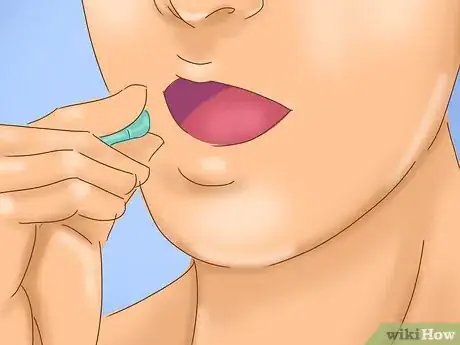




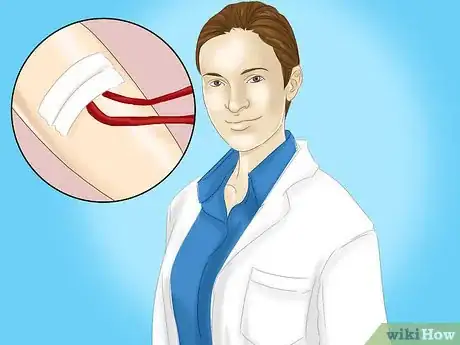


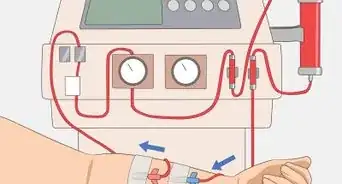

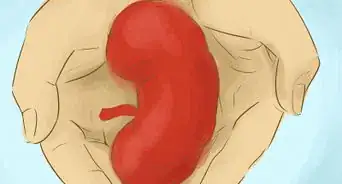


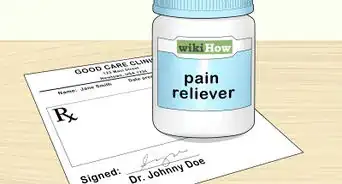
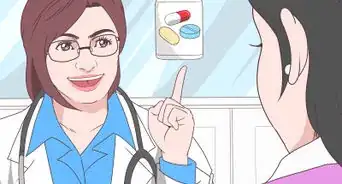


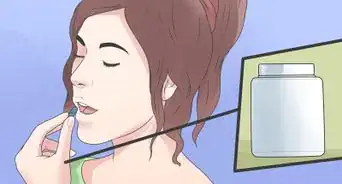
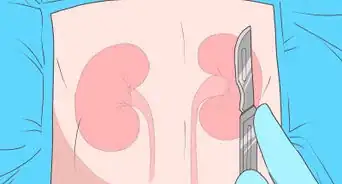












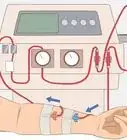




































Medical Disclaimer
The content of this article is not intended to be a substitute for professional medical advice, examination, diagnosis, or treatment. You should always contact your doctor or other qualified healthcare professional before starting, changing, or stopping any kind of health treatment.
Read More...